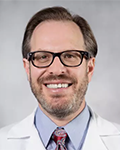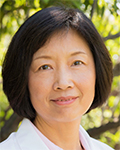Q&A: Jason Sicklick, MD, FACS, and Yuan Chen, PhD

 Surgical Oncologists as Scientists (SOAS) T32 Training Grant Aims to Move the Needle on Translational Cancer Research
Surgical Oncologists as Scientists (SOAS) T32 Training Grant Aims to Move the Needle on Translational Cancer Research
The UC San Diego Department of Surgery was granted T32 funding this month from the National Institutes for Health for a Surgical Oncologists as Scientists (SOAS) Training Program, which centers on the idea that patient health is a team sport.
Translational cancer research moves innovative discoveries from basic research to preclinical validation (often utilizing bio-banked tissue) and then on to clinical implementation via entrepreneurship and commercialization. SOAS will train two new surgeon-scientists annually in three topics: 1) the tumor microenvironment (TME); 2) tissue biobanking via our College of American Pathologists (CAP)-certified biorepository; and 3) innovation & entrepreneurial skills.
The SOAS Training Program is dedicated to training a diverse group of surgeon-scientists, including individuals from various backgrounds such as women, underrepresented minorities, and LGBTQ+ individuals. The program aims to nurture these trainees into future leaders in academic surgery and oncology, equipping them with the necessary skills to contribute to the translation of innovative discoveries into improved clinical cancer care.
Jason Sicklick, MD, FACS, and Yuan Chen, PhD, will oversee the SOAS program. For this month’s Q&A, Drs. Sicklick and Chen elaborate on the purpose of the grant, discuss the types of trainees they are looking for and describe what a successful outcome will look like.
Q: What is the larger purpose of the T32 grant from the department's perspective?
Dr. Sicklick: The overall purpose is to provide grant support to train the next generation of academic surgical oncologist-scientists. Our rationale for training in TME is that increasingly, the oncologic surgeon- scientist needs to thoroughly understand details of the major role the TME plays in cancer initiation, progression, metastasis, response to therapies, and how it may help identify novel targets for anti-cancer drugs.
Dr Chen: The rationale for training in biobanking is that academic surgeons are frequently asked to collaborate in research because of their unparalleled access to human specimens, which must be properly banked in a dedicated biorepository. We’re also emphasizing training in innovation and entrepreneurship due to the critical need to ensure that research training has real-world translational relevance—that is, we need to demonstrably improve cancer care, not merely improve understanding.
Q: What type of surgeon-scientists are you hoping to train with this grant?
Dr. Sicklick: Surgical residents who will become future leaders in academic surgery. We’re leveraging the metropolitan San Diego area as the third largest assembly of components necessary to successfully translate (i.e., commercialize) innovations into Food and Drug Administration (FDA)-approved clinical realities. San Diego includes a plethora of biotech startups (hundreds spun out of UC San Diego), Angel investors, private equity and venture capital firms, contract research organizations, and local networking activities.
Q: What makes Moores Cancer Center the ideal place to conduct this training?
Dr. Chen: We have more than 17 NIH-funded scientists, including surgeon-scientists, studying different aspects of the tumor microenvironment in various cancers. These individuals will serve as mentors for the program. Moreover, we have one of the only a handful of College of American Pathologist certified biobanks in California. Thus, they will be trained in state-of-the-art biobanking that is crucial to the success of any translational research laboratory. Finally, moving discoveries from the bench to the bedside requires entrepreneurship and innovation. As Dr. Sicklick said, UC San Diego is a hotbed for this kind of activity and a great place to expose trainees to the process of translating their work to the care of patients.
Q: How will you know this program is successful?
Dr. Chen: Success will be measured by training surgeon-scientists that ultimately become independent NIH-funded investigators when they complete their surgical oncology fellowship training.
